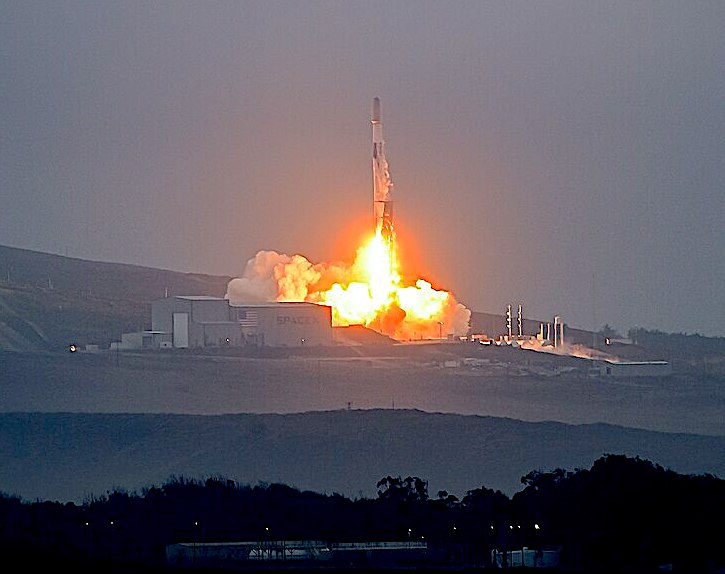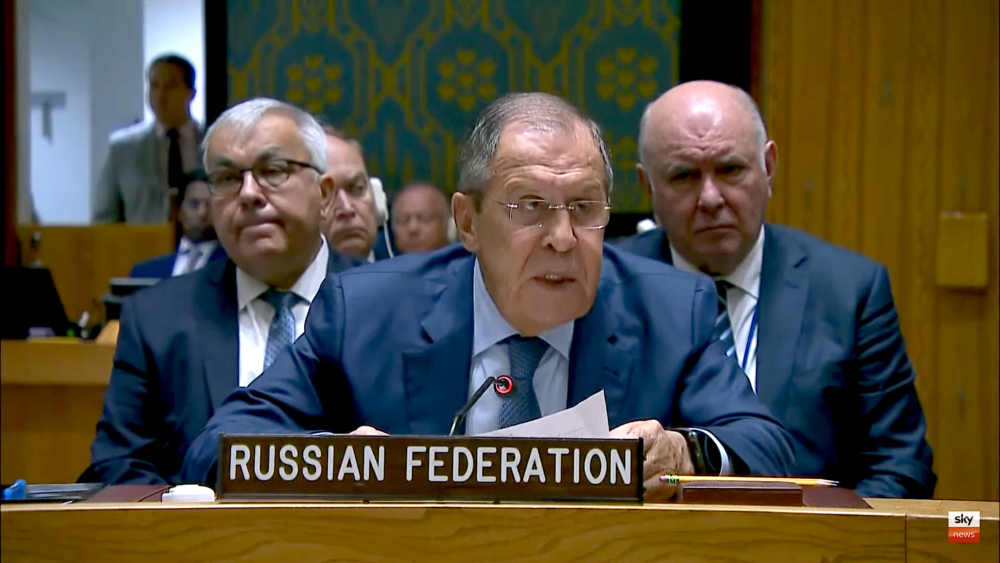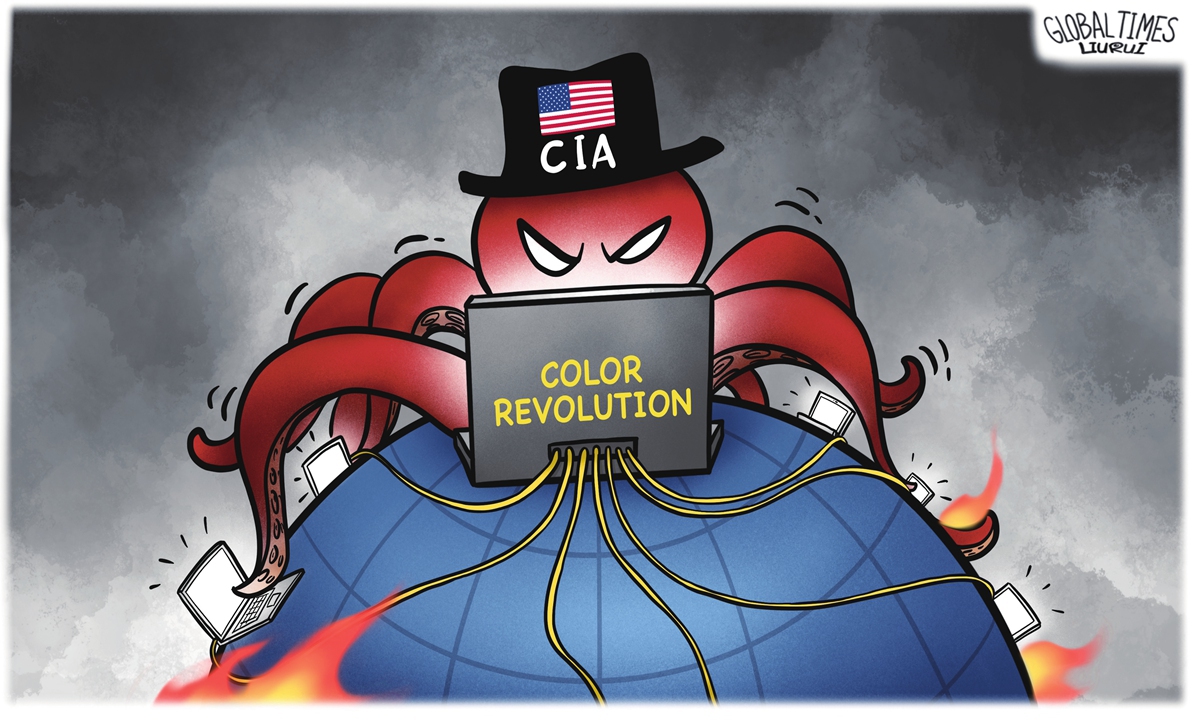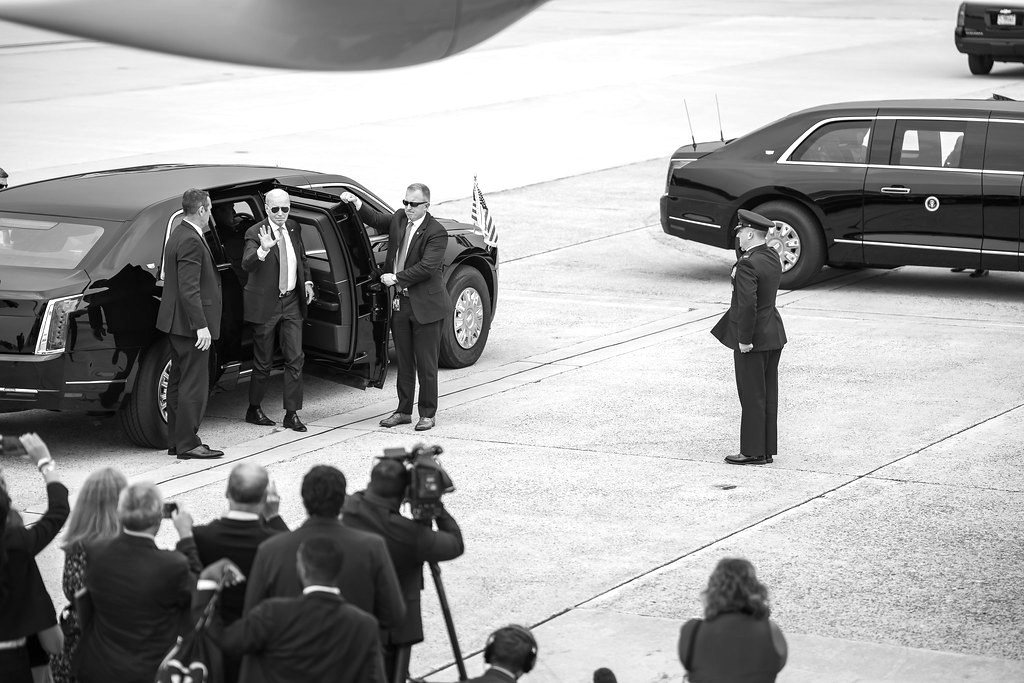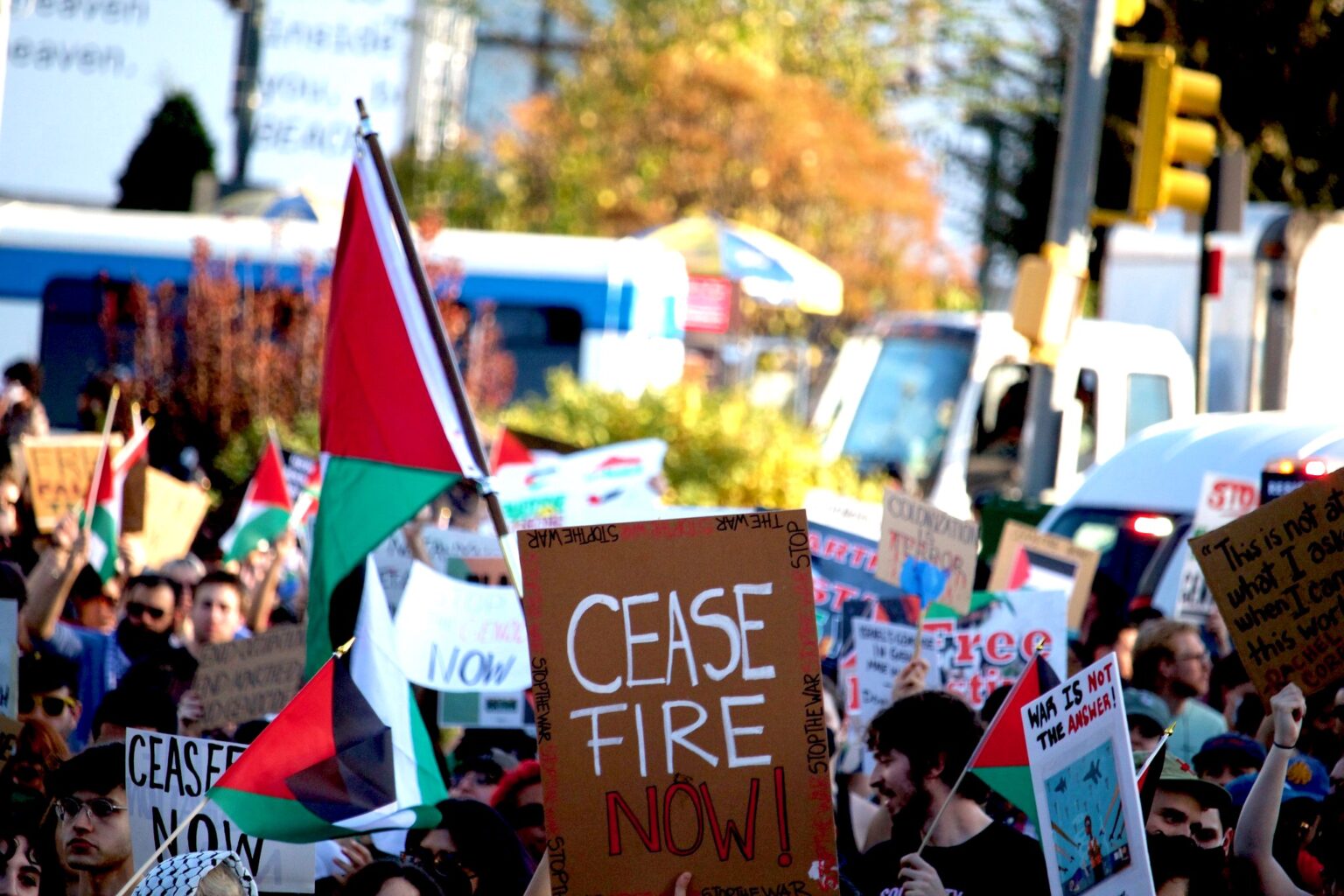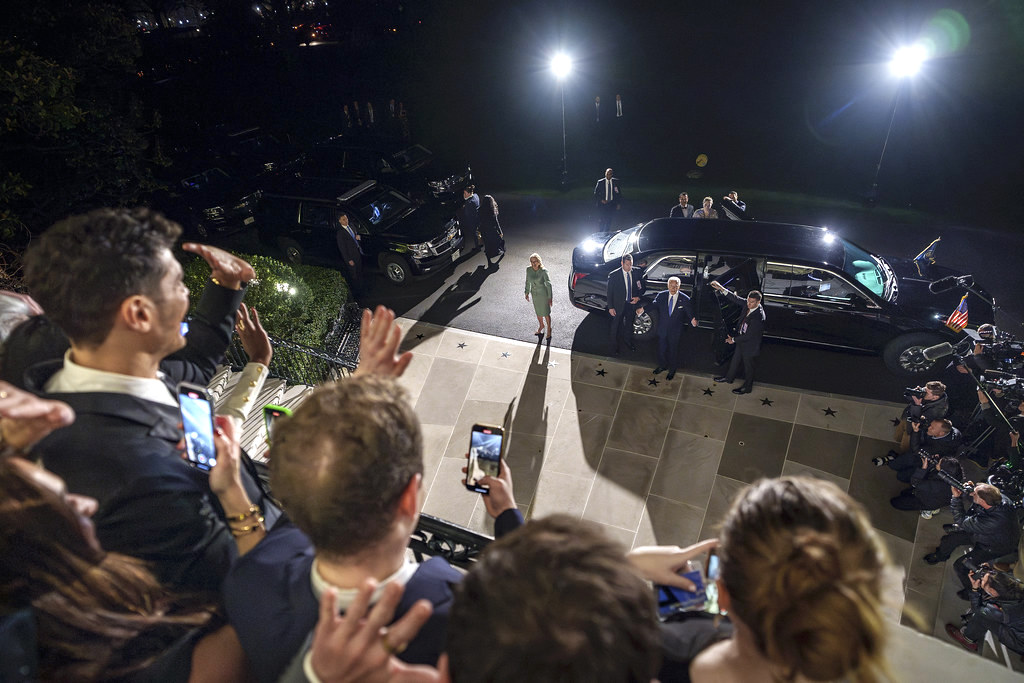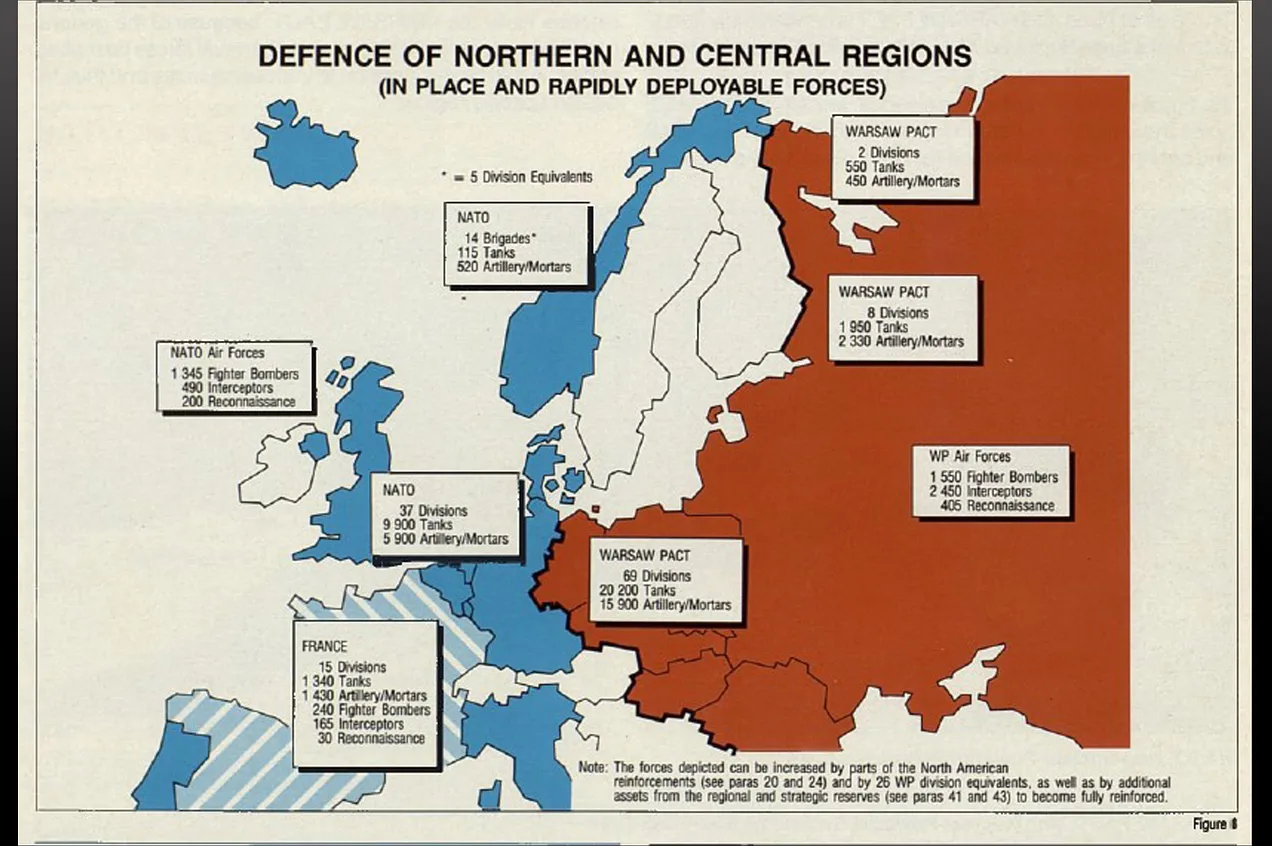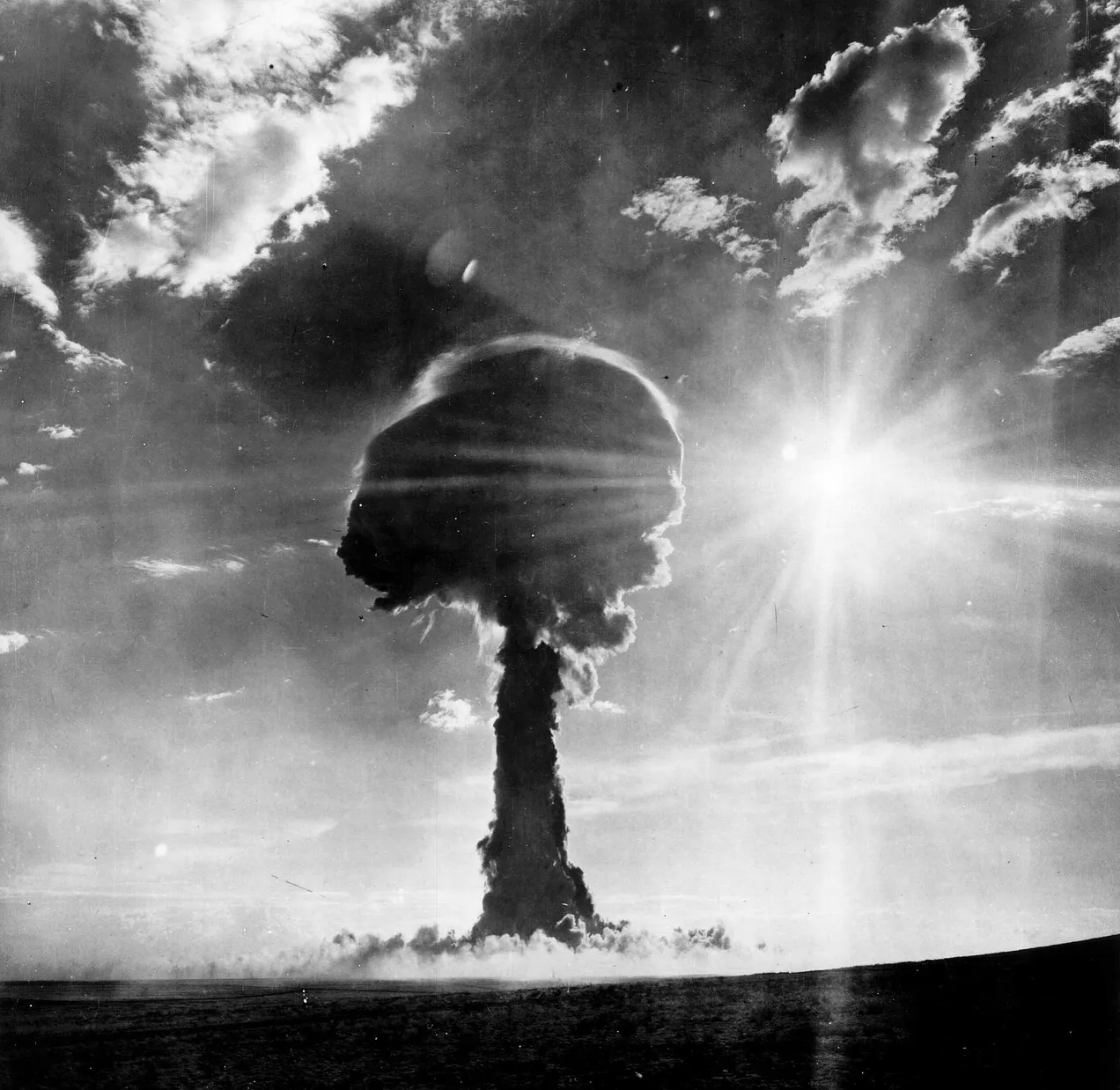The Merciless Grip of Geostrategic Logic
BIG SERGE
FEB 13, 2024
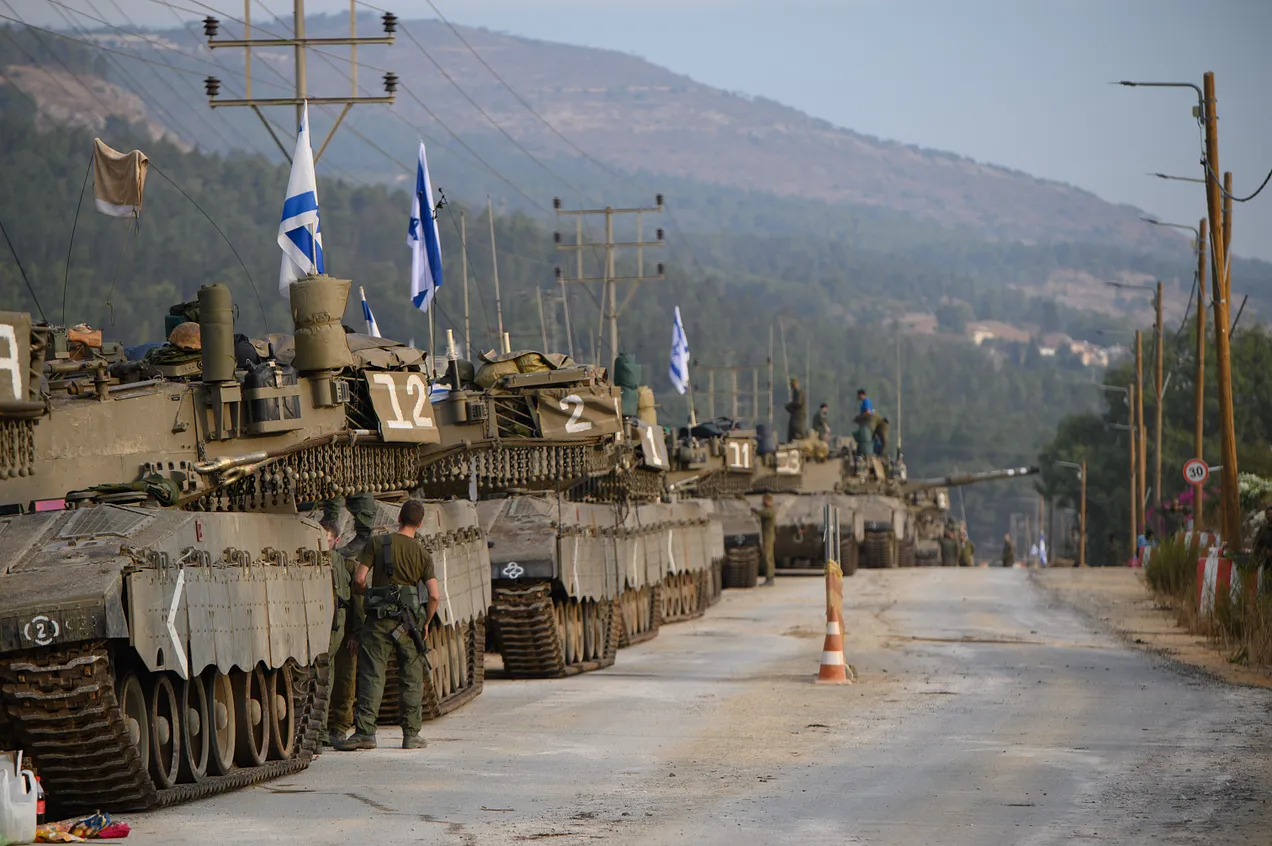
Pieces Moving
Note: I apologize in advance for the potentially rambling nature of this piece, which is something of a stream of consciousness geostrategic meditation. It’s possible that this is too abstract to be interesting. If so, please berate me in the comments.
I am a great lover of chess. While no more than a middling player myself, I am endlessly entertained by the seemingly countless variations and strategic contrivances that the world’s great players can create from that same, familiar beginning. Despite being an old game (the rules that we know today emerged in 15th Century Europe), it has resisted the enormous amount of computing power thrown at it in recent years. Even with powerful modern chess engines, it remains an “unsolved” game, open to experimentation and further study and contemplation.
One chess adage, which I learned early at my childhood chess club, is that one of the biggest advantages in chess is to have the next move - a sort of cautionary lesson to avoid being overly cocky before your opponent has a chance to respond. A little down the road, however, you learn about a concept that inverts and perverts this aphorism: something which we call Zugzwang.
Zugzwang (a German word that literally means “move compulsion”) refers to any situation in chess where a player is forced to make a move that weakens his position, such as a king that is backed into a corner to escape from check - each time he moves out of check, he moves himself closer to checkmate. More simply put, Zugzwang refers to a situation where there are no good moves available, but it is your turn. If you find yourself staring at the board, thinking that you would prefer to simply skip your turn, you are in Zugzwang. But of course, you cannot skip your turn. You have to move. And no matter what move you choose, your position gets worse.
mack442@fastmail.com
password
mack442@fastmail.com
Subscribe
This idea of having no good options while being compelled to act has become a motif in the enfolding era of geopolitical flux. Actors around the globe find themselves in situations where they are compelled to act in the absence of good solutions. Zbigniew Brzezinski famously wrote of geopolitics as analogous to a chessboard. If that is indeed the case, there now comes a time for choosing which pieces to save.
Jerusalem
It is almost impossible to find a dispassionate analysis of the Israeli-Arab conflict, simply because it sits directly upon a concatenation of ethno-religious fault lines. Palestinians are the object of concern for many of the world’s nearly two billion Muslims, particularly in the Arab world, who tend to view Gaza’s suffering and humiliation as their own. Israel, on the other hand, is a subject of rare agreement between American evangelicals (who believe that the nation state of Israel has relevance to Armageddon and the fate of Christianity) and the more secular American governing blob, which treats Israel as an American outpost in the Levant. To this, we can add the emerging religion of anti-colonialism, which views Palestine as something like the next great liberation project, akin to ending apartheid in South Africa or Ghandi’s campaign for Indian independence.
My goal is not to convince any of the aforementioned people that their views are wrong, per se. Instead, I would like to argue that, despite these many powerful emotional-religious currents, much of the Israeli-Arab conflict can be understood in fairly mundane geopolitical terms. Despite the enormous psychological stakes that billions of people have in the subject matter, it still unfolds itself to a relatively dispassionate analysis.
The root of the problems lay in the peculiar nature of the Israeli state. Israel is not a normal country. By this, I mean neither that it is a special, providential country (as an American evangelical might say), nor that it is a uniquely wicked root of all evil. Rather, it is extraordinary in two important ways that relate to its function and geopolitical calculus, rather than its moral content.
First, Israel is an Eschatological Garrison State. This is a particular form of state which perceives itself as a sort of redoubt against the end of all things, and accordingly becomes highly militarized and highly willing to dispense military force. Israel is not the only such state to have existed in history, but it is the only obvious one extant today.
A historical comparison may help explain. In 1453, when the Ottoman Empire at last overran Constantinople and brought an end to the millennia-old Roman imperium, early medieval Russia found itself in a unique position. With the fall of the Byzantines (and the previous schism with western papal Christianity), Russia was now the only Orthodox Christian power remaining in the world. This fact created a sense of world-historic religious siege. Surrounded on all sides by Islam, Roman Catholicism, and Turko-Mongol Khanates, Russia became a prototypical Eschatological Garrison State, with a high degree of cooperation between Church and State and an extraordinary level of military mobilization. The character of the Russian state was indelibly formed by this sense of being besieged, of being the last redoubt of authentic Christianity, and the consequent need to extract a high volume of manpower and taxes to defend the garrison state.
Israel is much the same, though its sense of eschatological terror is of a more ethno-religious sort. Israel is the only Jewish state in the world, founded in the shadow of Auschwitz, besieged on all sides by states with which it has fought several wars. Whether this justifies the kinetic aspects of Israeli foreign policy is not the point. The simple fact is that this is Israel’s innate self conception. It is an eschatological redoubt for a Jewish population that sees itself as having nowhere else to go. If one refuses to acknowledge the central Israeli geopolitical premise - that they would do anything to avoid a return to Auschwitz - one will never make sense of their actions.
However, the Eschatological-Garrison nature of the state is not the only way in which Israel is abnormal. It is also quite unusual in that it is a Settler-Colonial State in the 21st century. Israel maintains hundreds of settlements in soft-annexed territories like the West Bank, which are home to half a million Jews. These settlements constitute an effort to demographically strangulate and assimilate Palestinian lands, and cannot be described as anything other than settler-colonialism. Again, all sorts of religious arguments will fly as to whether this is justified or not, but the reality that all must acknowledge is that this is not normal. Denmark does not have colonies. There are no Danish villages being built in Northern Germany to extend Danish rule. Brazil does not have colonies. Neither does Vietnam, or Angola, or Japan. But Israel does.

IDF on the move
Thus, Israel unfolds according to unique geopolitical logic because it is a unique state, having both an Eschatological-Garrison and a Settler-Colonial nature. The viability of the Israeli project depends on the ability of the IDF to maintain powerful deterrence and protect Israeli settlements and settlers from attack. This fact creates a sense of asymmetric vulnerability for Israel.
“But Serge, you erudite rascal”, I hear you say. “Aren’t you using overly wrought geopolitical jargon to obfuscate the issue?” Yes, but let me explain. A security asymmetry exists in Israel because the IDF needs to maintain massive full-spectrum overmatch over its adversaries, both in conventional war against state actors *and* a preclusive defense that can effectively filter against low intensity non-state actors. Israel’s security situation has been built on the back of overwhelming victories over surrounding Arab states - the Six Day War, the Yom Kippur War, and so forth, but it also needs to constantly filter and defend against low intensity attacks. The viability of Israel’s settler project is guaranteed only by IDF overmatch and the threat of punitive attacks.
More importantly, the IDF must not only maintain overmatch in high-intensity warfare (wars with neighboring states), but it must also efficiently filter against low-intensity threats like episodic rocket attacks and cross-border incursions by Hamas. The viability of Israeli settlements depends particularly on the latter, made possible by Israeli intelligence, a dense surveillance system, and physical barriers.
An analogy may be useful.
Did you know that the Roman Empire did not defend its borders? It may sound strange, but it is true. Particularly in the high days of the Julio-Claudians (from Augustus to Nero), Rome had fewer than 30 legions, the deployment of which left vast gaps in the border which were bereft of Roman troops. So, how did the Empire stay safe?
In the first century, Rome was faced with a Jewish revolt in its province of Judea. At the height of its powers, Rome never faced a genuine threat from the Jewish rebels, and several years of counterinsurgency saw the movement largely stamped out. By late 72 AD, the Romans had a few hundred rebels trapped in a hilltop fortress at Masada. The rebels had limited supplies. It would have been a trivial thing for Rome to leave a detachment to besiege the fortress and wait for the defenders to surrender. But that was not the Roman style. Instead, an entire legion was committed to build an enormous ramp up the side of the hill, which was used to haul huge siege engines up the slope and smash the fortress open.
Why? For Rome, this seemingly oversized force commitment (an entire Legion to dig out a few hundred hungry Jewish rebels) was worth it, because it maintained the widespread fear that any attack, any disobedience against the Empire would bring an enormous hammer down. “Cross us, and we will hunt you down and kill you.” In a sense, the excessive force commitment was the point, and served as a conspicuous display of military profligacy. Rome was able to secure the borders of an enormous empire for centuries with shockingly low force generation by maintaining the threat of overmatch, and reliably (we might say excessively) punishing those who either invaded or rebelled. In the case of the 1st Century Jews, their temple was destroyed, much of Jerusalem was wrecked, and their leadership was devastated and scattered.
Ironically, Israel now finds itself in a situation similar to their former Roman overlords, needing to maintain full spectrum overmatch and the political will to wield their power punitively in order to sustain deterrence and protect their settler project. Much like 1st Century Rome, Israel perceives that its capacity to interdict low intensity threats has been called into question by Hamas’s strategic surprise in October, and like Rome the IDF is attempting a display of conspicuous military profligacy.
That is why, on October 7, Israel found itself in Zugzwang. It had to move, but the only move available was a massively destructive invasion of the Gaza Strip, because Israeli strategic logic dictates an asymmetric response. Hamas’s attack necessarily triggered a ground invasion and concordant air campaign with the ostensible goals of eliminating the organization, despite the obvious certainty that would cause mass casualties in Gaza and abnormally high losses among the IDF. This is a highly populated, densely settled area full of civilians with nowhere to go. Any Israeli response was bound to kill and wound large numbers of civilians, but the necessity of a response is dictated by the nature of the Israeli state.

Eschatology
Ultimately, I have always believed that there is no durable solution to the Israeli-Arab conflict short of military victory for one side or the other. Neither a two-state nor a one-state solution is viable given the current construction of the Israeli state and its ideological content. A one-state solution (which gives citizenship to Palestinians within the Israeli polity) is unlikely to satisfy anyone, but would be particularly abhorrent to the Israelis who would correctly perceive it as the de-facto surrender of their state via demographic overwhelming. A two-state solution would require an Israeli strategic retreat from its settlements. In short, any of the potential diplomatic arrangements constitute Israeli strategic defeat, and can only come about once Israel has actually suffered such a strategic defeat on the battlefield.
So, Israel’s blood is up. Within the peculiar parameters of Israeli strategic logic, it must smash Gaza by military force or else face the irretrievable discreditation of the IDF’s deterrence, and in turn the collapse of the settler project. Either the capacity of the Palestinians to offer low-intensity threats will be shattered, or the population will flee into the Sinai. Probably, for Jerusalem, it does not matter much which.
Ultimately, foreign observers must understand that the Israeli-Arab conflict is practically predestined by the peculiar nature of the Israeli state. As both an Eschatological Garrison state and a Settler-Colonial enterprise, Israel is unable to relate normally with the Palestinians (who do not have a state at all), and the only way out of the jam is either an Israeli strategic defeat or the shattering of Gaza. This is not a puzzle with a clean solution.
Washington and Tehran
Concurrent with the collapse of the temporary stable state in Israel, the United States faces an unraveling of its position across the region, particularly in Iraq and Syria. This, perhaps even moreso than the Israeli predicament, represents an idealized example of geopolitical zugzwang.
To begin, one must understand the strategic logic of American strategic deployments. America has made generous use of a strategic deterrence tool colloquially known as the Tripwire Force. This represents an undersized, forward deployed force located in potential conflict zones with an eye to deterring war by signaling a commitment to respond. The classic example of the tripwire force was America’s minuscule deployment in Berlin during the cold war. Far too small to derail or defeat a Soviet offensive (and indeed, conspicuously so), the purpose of the American Berlin garrison was, in a sense, to offer themselves up as potential casualties, denying America any political latitude to abandon Europe in a conflict. American forces in South Korea serve a similar purpose: since in North Korean incursion into the South would necessarily kill American troops, Pyongyang understands that it would be ipso facto declaring war on the United States along with the South.
On the whole, the tripwire force is a useful and well established tool in strategic deterrence, utilized by both the United States and the Soviet Union (as in its deployments in Cuba) throughout the cold war.
Today, the United States adopts a similar strategy in the middle east, in relation to Iran. America’s strategic goals in the Middle East are actually not particularly complex, though they are often made to seem this way simply by the fact that the American foreign policy complex is both bad at and uninterested in explaining itself.
The American strategic goal, in a few words, is to conduct area denial and prevent Iranian hegemony in the middle east. This, in turn, is an extension of the broader American grand strategy, which is to prevent the preeminent or potential regional hegemons from consolidating positions of domination in their regions: Russia and Germany in Europe, China in East Asia, Iran in the Middle East. The geopolitical story of the modern world is one of triple containment by the United States, using an array of regional satellites, proxies, and forward deployments. Because Iran is the only state in the Middle East with the potential to become a regional hegemon, it is the object of American containment.
America’s lingering deployments in places like Iraq and Syria therefore ought to be understood primarily as efforts to disrupt Iranian influence and offer forward deployment to combat Iranian militias (these deployments are themselves necessary because American adventurism throughout the last two decades created vacuous Trashcanistans in Iraq and Syria that are vulnerable to creeping Iranian influence). They can be understood as a form of tripwire force that also has limited operational value.
Unfortunately, the United States has discovered the limits of these skeletal forward deployments. The American presence across the region is too small to credibly deter attack, but large enough to invite it.

Immunity to Deterrence
The problem, very simply, is that the standard American toolbox is relatively useless for deterring Iran and its proxies, for a variety of reasons. The standard American reprisal for attacks on its facilities and personnel - air strikes - have little deterrent value against irregular combatants who are both willing to take casualties and mentally acclimated to a long struggle of strategic attrition and survival. Iran and its proxies have long time horizons that are resistant to short, sharp rebukes.
Furthermore, Iran and its allies thrive in conditions of governmental disorder, inuring them to America’s capacity to smash up states (creating what I call trashcanistans). Creating a trashcanistan can be strategically useful in many circumstances - by intentionally creating a failed state, a vacuum of disorder can be created on the enemy’s doorstep. In the right circumstances, this is a potent lever for creating geostrategic area denial. In Iran’s case however, failed (or at least, destabilized centers) create vacuums for which Iran is the most natural fill. This is why America’s geopolitical shooting spree across the Middle East has coincided with decades of steady growth in Iranian influence.
All that is to say, America’s levers in the Middle East do not pose a credible deterrent to either Iran or its proxies. This is being demonstrated in real time, with American displays of force flatly failing to curb Iranian activities. American bases have endured relentless rocketry attack by Iranian proxies (attacks that have killed American soldiers), and the Ansar Allah movement (the Houthis) continue to obstruct shipping in the Red Sea despite a limited air campaign. In a geostrategic environment where deterrence is no longer credible, tripwire forces (like the American bases at Al-Tanf and Tower 22) cease to become deterrents at all, and become mere targets. Furthermore, the death of American soldiers no longer inspires public outrage and war fever the way it once did. After decades of wars across the Middle East, Americans are simply habituated to hearing about casualties in places that they have never heard of and do not care about. Thus, as both a geostrategic and a domestic-political instrument, the tripwire is busted.
Once again, our good friends the Romans provide an instructive analogy.
In the first years of the 2nd Century (roughly 101-106 AD), the great Roman Emperor Trajan conducted a series of campaigns which conquered the independent polity of Dacia. Though Putin’s interview with Tucker Carlson perhaps did much to normalize verbose historical digressions, we will steer clear of the particularities of the Dacians’ Indo-European origins and simply say that Dacia should be thought of as Ancient Romania. In any case, the great Trajan conquered Dacia and added vast, populous new provinces to the Empire. Yet this conquest was understood as a sign of Roman weakness. How? Why?
For centuries, Rome had indirectly controlled Dacia as a sort of client-proxy kingdom on its borders, kept in line with punitive expeditions and the threat that they posed. On occasions where the Dacians behaved in a way problematic to Rome (such as raiding into Roman territory or becoming too independent or assertive), Rome would make punitive attacks, burning Dacian villages and often killing Dacian chieftains and kings. By the first century, however, Dacia had become increasingly powerful and politically consolidated, and Rome felt compelled to act more aggressively. In short, Trajan had to conquer Dacia - a militarily expensive and complicated campaign - because Rome’s deterrence was vanishing, and the threat of limited punitive forays had become ever less frightening to the Dacians.
This is a classic example of strategic paradox. An evaporating strategic advantage undercut Rome’s deterrence, forcing it to adopt a much more costly and expansive military program to compensate for its gnawing weakness. The paradox here is that the conquest of Dacia was an impressive military feat, but one which was made necessary by collapsing Roman deterrence and intimidation. If Rome had been stronger, it would have continued to control Dacia through indirect (and cheaper) methods, which did not require permanently stationing several legions there. It was a great victory (which did bring about many tangible benefits to the Empire), but in the long run it represented an undeniable contributor to Roman overstretch and exhaustion.
We see a similar dynamic at play in the Middle East, where America’s falling deterrent powers may soon force it to take more aggressive measures. This is why those voices calling for war with Iran, as deranged and dangerous as they may be, are actually keyed in on a crucial aspect of America’s strategic calculus. Limited measures no longer suffice to intimidate, which may leave nothing in the stable except the full measure.
And so, America faces Zugzwang. As yet it appears that the traditional American toolbox has little to no deterrent value, and American bases around the region appear to be more like targets that tripwires. Similarly, the limited air campaign against Yemen does not appear to have meaningfully degraded Houthi willingness or capability to attack shipping. A recent decapitation strike against the Kataib Hezbollah group - on paper an impressive demonstration of American intelligence and strike capability - led only to another violent outburst against the Green Zone in Baghdad. More broadly, a surge in American strategic deployments (both in the form of a reinforced ground presence and the arrival of naval assets) did not appear to meaningfully deter the Iranian axis.
America soon faces the prospect of a difficult choice, between strategic retreat or escalation. In either case, a skeletal tripwire deployment in the region becomes obsolete, and America must either get out or go in deeper. This is why there are now alarms flashing in the foreign policy blob, who fear an American withdrawal from Syria, alongside ever more deranged calls to “bomb Iran." That’s Zugzwang: two bad choices.
Kiev
Finally, we come to the European front, where the United States faces a difficult choice. America’s strategic premise in Ukraine was put in serious doubt by two important developments over the past year. These were 1) the abject failure of Ukraine’s counteroffensive, and 2) Russia’s successful mobilization of both additional manpower and its military industrial complex, despite an attempted strangulation via western sanctions.
Suddenly, the idea of America conducting an asymmetric weakening of Russia seems increasingly shaky, since it is now both highly doubtful whether Ukraine can retake meaningful territories and apparent that the Russian military is on track to emerge from the conflict both larger and significantly battle hardened from its experiences. Indeed, it now appears that the most important results of Washington’s Ukraine policy have been to reactivate Russian military production and radicalize the Russian populace.
Now, Washington faces a choice. Its initial preference was to backstop the Ukrainian military with lower cost material (old Soviet bloc inventories from Eastern European NATO members and available surpluses of western systems), but this has now clearly run its course. Efforts within the NATO bloc to expand production of key systems, like artillery shells, are largely stalled, with the Pentagon quietly downsizing its production targets as time goes on. Meanwhile, a consensus has emerged that Russia’s efforts to ramp up weapons production have been remarkably successful, with the Russian industrial complex enjoying a significant advantage in both total output and unit cost of key systems.
So, what to do?
The west (by which we really mean America) has three options:
Taper off support for Ukraine, in effect conducting a strategic retreat and writing off Kiev as a doomed geostrategic asset.
Maintain support along the current lines, aiming to sustain a modicum of baseline AFU combat power, which keeps Ukraine on a life support drip as they suffer strategic exhaustion.
Massively ramp up support for Ukraine through a wholesale military industrial policy, in effect partially transitioning the west to a war footing on behalf of Ukraine.
The issue here is that Russia has a head start in transitioning to a war economy, and has little difficulty selling that choice to the populace because the country is, in fact, at war. Russia enjoys significant advantages, such as a lower cost structure and more compact supply chains. In an election year, with a growing portion of both the electorate and the congress appearing weary of hearing about Ukraine, it is difficult to imagine the United States committing to a de facto economic restructuring and disruptive war economy on Ukraine’s behalf. In fact, there now appears to be growing alarm that military aid from the United States might be cut off altogether, with the latest aid package appearing unlikely to pass the house amid the latest border security imbroglio.
And so America faces Zugzwang in Ukraine. It can choose to go all-in, but this means both selling a disruptive breakneck rearmament to the American public in peacetime, *and* gambling on a faltering piece in Kiev (which is now facing a command shakeup and yet another shattered defensive stronghold in Avdiivka). Strategic retreat in the form of abandoning Kiev may make the most sense from a pure cost-benefit perspective, but there are undoubtedly prestige factors at play. Walking away from Ukraine entirely and simply leaving it to be steamrolled would be seen, and rightfully so, as a Russian strategic victory over the United States.
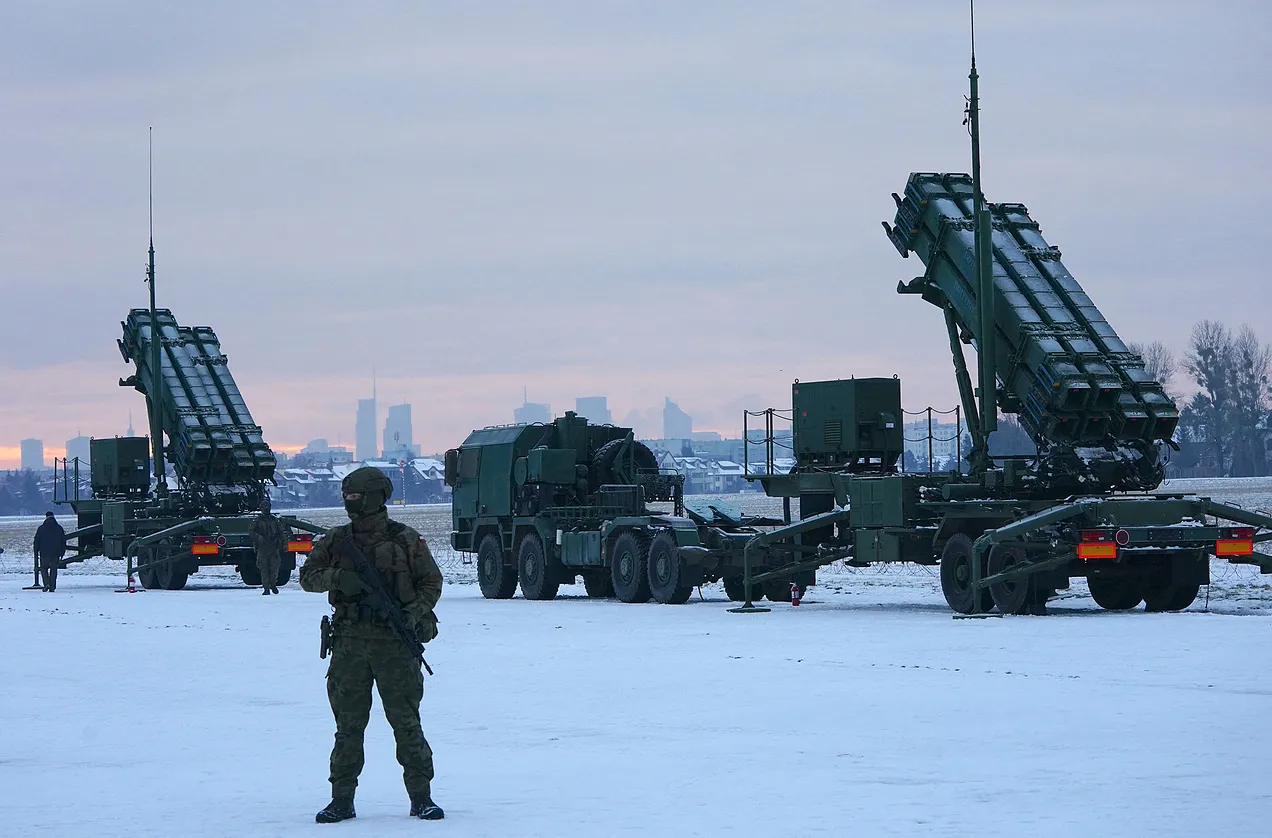
That leaves the third door, which is the sort of drip feed of aid that maintains the perception of American support for Ukraine, but offers no real prospect of Ukrainian victory. This is a cynical play, which props the Ukrainians upright for a slower death for which they themselves can be held accountable - “we never abandoned Ukraine, they lost.”
No good options? That’s zugzwang.
Conclusion: Go In or Get Out
The basic geostrategic problem facing the United States (and its ectopic paramour, Israel) is that the ability to conduct asymmetrically inexpensive countermeasures has become exhausted. The US can no longer prop up Ukraine with surplus shells and MRAPs, nor can it deter the Iranian axis with reprimands and air strikes. Israel can no longer maintain the image of its impenetrable preclusive defenses, upon which its peculiar identity depends.
That leaves the difficult choice between strategic retreat and strategic commitment. Half measures no longer suffice, but is there will for a full measure? For Israel, which has no strategic depth and a unique world-historic self conception, it was inevitable that commitment would be chosen over strategic withdrawal (which in their case is much more metaphysical than purely strategic, and amounts to the deconstruction of the Israeli self conception). Thus, the immensely violent Israeli operation in Gaza - an operation that could never have gone any other way, given the density of the population and its eschatological meaning.
America, however, has a great degree of strategic depth - the same strategic depth which allowed it to withdraw from Vietnam or Afghanistan with few meaningful ill effects on the American homeland. The possibility most certainly remains for a prosperous and secure America long after withdrawing from Syria and Ukraine. Indeed, the famously chaotic scenes of frantic evacuation from Saigon and Kabul represent remarkably clearsighted moments in American foreign policy, where realism prevailed and losing chess pieces were left to their fates. This is cynical, of course, but that is the way of the world.
This is a standard motif of world history. The most critical moments in geopolitics are generally those where a country faces the choice between strategic retreat or full commitment. In 1940, Britain faced the choice between accepting Germany hegemony on the continent or committing to a long war which would cost them their empire and lead to their final eclipse by the United States. Neither is a good choice, but they chose the latter. In 1914, Russia had to choose between abandoning its Serbian ally or fighting a war with the Germanic powers. Neither seemed good, and they chose the latter. Strategic retreat is hard, but strategic defeat is worse. Sometimes, there are no good choices. That’s Zugzwang.
https://bigserge.substack.com/p/the-age-of-zugzwang
*****
Will NATO be dismantled? Interview on India’s WION television channel
I am honored that India’s premier English language international broadcaster WION sought my comments on the present scandal surrounding Donald Trump and non-fulfillment by the U.S. of Article 5 obligations to assist NATO member states in case of Russian attack. My interviewer was Shivan Chanana, Anchor and Producer at WION, who had probing questions of great value.
I tried to make plain in the interview that Trump is intent on the break-up of NATO for reasons that make sense to those of us who had the good fortune to listen a couple of years ago to the late Russian politician, founder and long-time chairman of the center-right LDPR party. Vladimir Zhirinovsky explained at the time why and how Russia, with a defense budget ten times smaller than the US, could pull ahead of the US in developing and deploying state of the art strategic nuclear weapons systems.
And since then, the standing of Russia’s conventional forces has also caught up with and moved ahead of the States. The ongoing war in Ukraine has demonstrated that Russia is the world’s biggest producer of artillery shells and is equipping its armed forces with the latest generation field weaponry, reconnaissance and strike drones, electronic warfare gear and much more. Whereas just a few years ago Russian military planners were certain they could not match NATO on the field of battle with conventional arms and would have to go nuclear should there be a hot war, today Russian generals are satisfied that their conventional forces are more than a match for NATO even with full U.S. participation. We see the proof daily in Ukraine.
Zhirinovsky told us the reason. With its vast network of overseas military bases built to ensure U.S. global hegemony, the U.S. military budget of 800 billion to 1 trillion dollars, as he said with a bit of humor, ‘goes to buy toilet paper’ for those bases and to fight hot wars in places that have no strategic value to the States instead of developing and fielding weapons systems to match its peers Russia and China.
One might look still further and remark on the corruption in the U.S. military procurement system from interaction with private for-profit manufacturers who lobby Congress on their own behalf using retired generals and Pentagon officials. But that source of reduced efficiency in spending is a topic for another day.
To the question of what relations between Russia and the United States will become if Trump wins the November elections, I had the opportunity to deliver an answer that I have mulled for some time. Despite his own words on the campaign trail in 2016 and despite the false accusations raised by Hilary Clinton of complicity between Trump and Putin ahead of the elections, once in the Oval Office Trump was no friend of Russia and the countries’ bilateral relations went from bad to worse. In this interview I argue that the greatest contribution to Russian-American relations is being made by Trump precisely now when he is acting as a private person to influence Congress to stop funding the war. Once in office, he will be subject to constraints imposed by those elites whom Putin mentioned in his recent interview with Tucker Carlson.
I will say no more in this introduction. I do hope that readers will open the link and hear the 12 minute interview
©Gilbert Doctorow, 2024
Transcript below provided by a reader
Shivan Chanana: 0:00
NATO, the North Atlantic Treaty Organization, it’s a block of 31 members, mostly Western Nations. It’s essentially a security alliance, and if you attack one NATO member, you face the wrath of them all. Now former US President Donald Trump made remarks on NATO which have caused quite a stir. Trump in a recent speech said that he would encourage Russia to do whatever they wanted to NATO members who had not met their financial obligations. What are these financial obligations, and what’s the true cost of US protection under the NATO alliance? To talk more on this, to understand this better, we are being joined by Dr Gilbert Doctorow, who is an international affairs analyst, author and historian, joining us from Brussels. Very welcome to WION, sir. Wanted to get your understanding, what– get your thoughts on this. What are these financial obligations that Trump is referring to here?
Doctorow: 00:52
The obligation that he has in mind is a two-percent contribution, two percent of GDP contribution to defence by each of the member states. This was a big talking point, going back to the Obama years. But when Trump was in power, he was very aggressively making these demands, and it is now being raised again in his campaign speeches.
Chanana: 1:17
Doctor, I also wanted to understand– would you like to say something else?
Doctorow: 1:22
Yes, in addition to that, the reality is that because of the technical conditions of US-supplied weapon systems, particularly jets, the NATO member countries that are taking on US armaments, that is nearly all of them, are obliged to take on whole systems that effectively marginalize their own defence Industries.
Chanana: 1:51
Umhm. Just wanted to take this a little further: this two percent of the GDP that you just mentioned — and of course that is mentioned very much there for all the nations in the west who are part of this alliance — is it mandatory or is it voluntary for them to be paying this up to the US?
Doctorow: 2:09
Well, it’s not stated in the in the charter of NATO, but as a matter of policy over the years, the member states have been required to make such a contribution. In fact, at present day, all of the major West European members of NATO do not meet that level, aside from the UK. And those few states that meet the two percent requirement are huddled on the eastern border of NATO, that is to say, Baltic states, Finland and Poland. But the rest of Europe is under that limit, and there are good reasons for it.
Chanana: 2:51
When we talk about the Baltic states, of course they are facing Russia head-on. Do you feel that is probably one of the reasons why they don’t want to cut back on the two percent that is expected of them, to be spent on defence equipment which mostly comes from the US?
Doctorow: 3:07
The Baltic states all together have a population of perhaps three million people. When you look at them and say– and take them as a guide to what NATO [is] doing, we are really speaking about the tail wagging the dog. That they would be concerned about Russia, because they’re on the frontier, is obvious. But they should be more concerned, because of the way they have been flouting international law and EU standards in their treatment of their Russian-speaking minorities.
Chanana: 3:40
So when a nation becomes a part of NATO, Trump used the word, that they need to pay up to get US protection. Is this some kind of protection money, in a way, that is expected from all these nations, which Trump is kind of hinting at that he will be pressing down on this if he comes to power? And there’s a good chance he might just.
Doctorow: 4:03
I think we have to look beyond his words. The intent is to break up NATO. And because it is virtually impossible for the major powers in the west to reach the two percent target, given that they so de-industrialized and so marginalized their own defence industries, that the procurement is not workable to reach this kind of funding level. The intent of Trump is to break up NATO, for very good reasons. He is not a madman, and if we have a bit of time to discuss it this morning, it would be fine.
Chanana: 4:43
Mr Doctorow. I want to also understand from you, now if Trump comes to power this year, where do you see Russia-US ties heading? And will his presidency possibly bring a rift among NATO States if, as you mentioned, he’s wanting to bring a divide here and kind of break it up? Because it has been there since 1949. You really feel it can happen in Trump’s term if he comes to power this time?
Doctorow: 5:06
I think the– Mr Trump as a private citizen is doing more to end the war in Ukraine than Mr Trump as a future president could be able to do. By his political stance and rallying the Republicans to refuse to fund the war in Ukraine, he is accelerating the end of the war and saving lives on all sides, in a way that is very little appreciated by the media, and certainly not the broad public. This is not a madman. This a man who knows very well what he wants to do, and has in mind what he failed to do in his first presidency.
Chanana: 5:49
Doctor, you mentioned something very interesting here: that, you know, of course he does not want to continue with the wars there. Trump in as many words has mentioned that he needs just 24 hours to end the Russia-Ukraine conflict which has been going on. I wanted to just understand this from the Russian perspective as well. If Trump comes to power this year, where do you see Russia and US ties heading from here?
Doctorow: 6:12
Nowhere. Mr Trump during the presidency introduced severe sanctions, did confiscations of Russian assets and was no friend to Russia. He had a smiling mis– smiling summit with President Putin. They– he said things which alarmed the US press, because he did, he accepted Putin’s versions of the MH17 downing and so forth. But that was all just for public relations. The reality is that the US-Russian relations deteriorated very sharply under Trump. I wouldn’t wait to see his new presidency.
What he’s doing right now is more important than anything that he could do once he comes to the Oval Office. He is stopping the war, not because he has an agreement, a handshake with Putin, but because of what he’s doing to prevent further funding. And, as I say, this is not arbitrary. The breakup of NATO is not an arbitrary. It has to do with the whole concept of the US defence. US defence now is based on hundreds of military bases around the world and engagement which– engagement in armed conflict in many regions where the United States does not have a national interest.
7:37
If that means that the vast majority of US funding for defence goes to buying toilet paper for military bases around the world — as Mr Zhirinovsky, a Russian politician, once said with humor but with reality — and it is going to hot wars. It is not going to building US defence capability in terms of new… arms systems that would be on a level with what the Russians have now developed. So there is a logic to this all.
Chanana: 8:07
I want to come back to the two things that you mentioned. One is the breakup of NATO. And before that, I just want to also get your thoughts again on this: that Mr Trump is able to do more for the situation as of now as a citizen then he will be able to in case he becomes president again. Can you elaborate a little more on that?
Doctorow: 8:25
I think that– I’d like to make a reference to the famous Tucker Carlson interview with Putin a few days ago, in which Mr Putin said that it’s not the personalities of the person who sits in the Oval Office that counts. It’s what the elites think and are doing. Right now, Mr Trump is not hemmed in by elites. He is his own man, and therefore he is speaking and acting in a much freer way than he will be able to do if he comes to the the Oval Office again.
Chanana: 9:02
And when we talk about NATO, or rather the breakup of it as you mentioned, if Trump comes back, do you feel the breakup of NATO is imminent within his system?
Doctorow: 9:13
Well, nothing– you don’t sink a ship the size of NATO in one day, but it will be on a downward slope towards extinction. The United States Congress has passed legislation disallowing a president to break up NATO, but effectively, Mr Trump can make NATO unworkable. And I think that would be his aim: to withdraw American support and to redirect the funds for defence to where they can really help the United States equal its peers, Russia and China, in terms of new weapon development and implementation.
Chanana: 10:00
So if it was to distance itself from the NATO alliance– or do you feel NATO cannot survive without the US presence? Do you feel NATO can still survive if US is no longer there?
Doctorow: 10:12
No, NATO can’t survive without US presence. That is a given. Major broadcasters this morning have already put on air the conclusion that it will take 10 years for Europe to become self-standing in defence. The whole defence industry in Europe has been so wound down since 1991 that it is, that the countries here are unable to put together a force that has any weight to it without US participation.
Chanana: 10:51
Dr Doctorow, if NATO is dismantled, do you feel European– the defence industry in several European nations, that’ll also flourish and the US will also gain advantage from it? And if yes, then why? If you can elaborate on that.
Doctorow: 11:07
The defence industry will have to be revived in Europe from its rather pitiful state today, over a period of years, as let’s say, 10 years. That can happen. Why not? This– but the most important thing will be the political re-engagement with Russia. The– staring Russia in the face and being disarmed, as Europe is today, and not having confidence in US support, Europe will necessarily have to find some accommodation with Russia, in which case the importance of NATO itself will decline in a precipitous way. NATO has been revived — after going through several different reinventions of its purpose — it has been revived as an anti-Russian block. If Europe faces the fact that it cannot stand up to Russia and it has to find some accommodation, then the logic of NATO will dissolve.
Chanana: 12:06
That was Dr Gilbert Doctorow, International Affairs analyst, author and historian, joining us from Brussels. Always a pleasure hearing from you, sir. Some very, very important remarks that you’ve made here, and of course we’ll get to know how this all plays out as far as NATO is concerned if Trump comes to power. And there’s a good chance he might just. Thank you so much for joining in.
Doctorow: 12:25
Thanks for the invitation.
https://gilbertdoctorow.com/2024/02/13/ ... n-channel/
Doctorow thinks Trump is smart, it's a petty bourgeois thing, cause Trump is rich...But if fact he is willfully ignorant and survives thru his inherited wealth which allows him to hire enough brain power to keep his boat afloat. For now....

